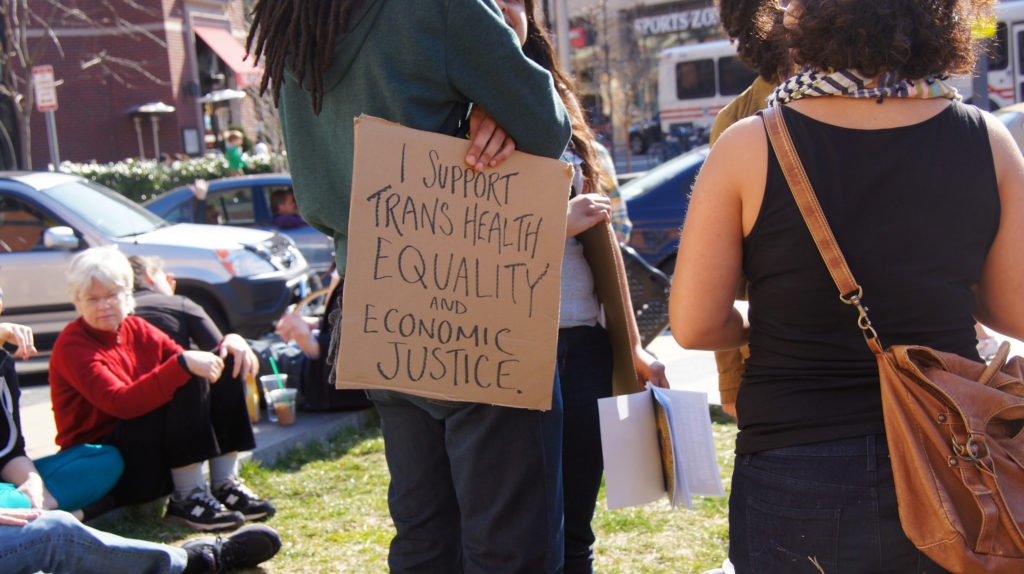A new study, led by Stephen Russell, a professor at the University of Texas at Austin, explores how transgender youth’s use of chosen names may impact their mental health. Results of the study, published in the Journal of Adolescent Health, suggest that when transgender youth are able to use their chosen name in more contexts, they experience less depression, suicidal ideation, and suicidal behavior.
“Results indicate that peers, parents, teachers, health care providers, and education and medical institutions can support transgender youth and their mental health by referring to them by their chosen names,” state the researchers.

Transgender refers to individuals whose gender identity does not match the sex they were assigned at birth. Transgender individuals are at a higher risk of discrimination, experiencing poor mental health, having suicidal thoughts, and engaging in suicidal behaviors (i.e., suicide attempts). First names are often gender-specific, and therefore many transgender individuals may choose a name that better aligns with their gender identity. The authors explain:
“Transgender youth whose gender expression and names do not appear to match may be vulnerable to unintended disclosure or ‘outing,’ and to discrimination or victimization, factors that could lead to mental health problems.”
In the current study, the researchers sought to investigate the connection between chosen name use and mental health in transgender and gender nonconforming youth. The authors used whether a transgender youth’s chosen name was used in four contexts (e.g., home, school, work, with friends) as a proxy for whether these contexts were affirming of the youth’s gender identity. The researchers collected self-report survey data from 129 transgender and gender nonconforming youth (ages 15-21) in 3 US cities. Seventy-four participants reported a chosen name different from their given name.
“After adjusting for personal characteristics and total social support, chosen name use in more contexts predicted fewer depressive symptoms and less suicidal ideation and suicidal behavior,” the researchers report.
Chosen name use was associated with a 29% decrease in suicidal thoughts and a 56% decrease in suicide attempts.
“Depressive symptoms, suicidal ideation, and suicidal behavior were at the lowest levels when chosen names could be used in all four contexts.”
Research shows that pro-LGBT public policies, such as the legalization of gay marriage, reduce suicide attempts in LGBT teens. As “one of the largest samples of transgender youth to date,” this study demonstrates that using chosen names may have similar positive effects. Therefore, the authors suggest:
“Multiple institutions—schools, community organizations, workplaces, health-care providers, financial institutions—could adjust regulations and information systems to include youths’ chosen name in records, rosters, and means of identification (i.e., ID cards).”
Many transgender individuals experience significant barriers to transition, which can be even more pronounced and distressing for youth, who are already in a time of developmental transition. Using chosen names is one important way to affirm their identities and promote well-being.
****
Russell, S. T., Pollitt, A. M., Li, G., & Grossman, A. H. (2018). Chosen name use is linked to reduced depressive symptoms, suicidal ideation, and suicidal behavior among transgender youth. Journal of Adolescent Health. Advance online publication. https://doi.org/10.1016/j.jadohealth.2018.02.003 (Link)














